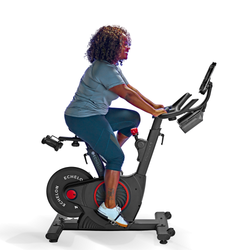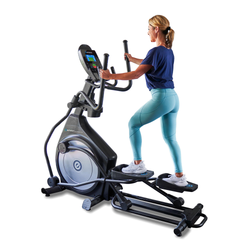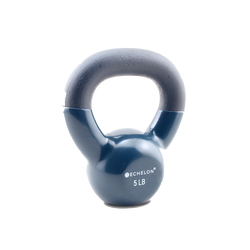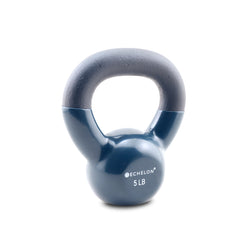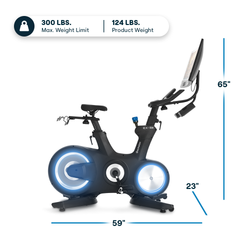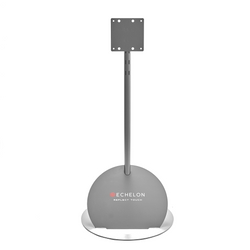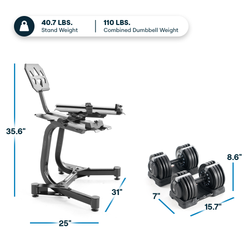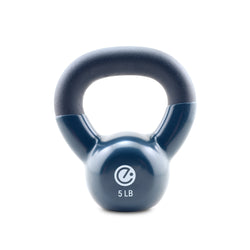Improve Your Mood: Exercise Types for a Healthier Mind

Staying physically active can be a great way to improve your mental health. Exercise helps to reduce stress, reduce anxiety, and boost mood. But not all exercises are created equal. Different types of exercises can have different benefits for mental health. In this blog post, we will explore the best types of exercise for improving mental health and discuss why they are beneficial. Whether you’re looking to reduce stress or increase self-confidence, this post will provide you with the information you need to choose the right type of exercise for you.
The Link Between Exercise and Mental Health
Exercise and mental health have a powerful connection. Engaging in regular physical activity can do wonders for your mental well-being. When you exercise, your body releases endorphins, which are chemicals that act as natural mood boosters. These endorphins can help alleviate symptoms of depression and anxiety, making you feel happier and more relaxed.
But the benefits go beyond just the release of endorphins. Exercise also increases blood flow to the brain, promoting the growth of new neurons and improving cognitive function. This can lead to better memory, concentration, and overall brain health. Additionally, exercise has been shown to reduce levels of stress hormones, such as cortisol, and stimulate the production of feel-good neurotransmitters, like serotonin.
Regular exercise can also improve sleep patterns, increase self-confidence, and provide a healthy outlet for managing emotions. Whether it's going for a jog, taking a dance class, or practicing yoga, finding a type of exercise that you enjoy can have a profound impact on your mental health.
So, if you're feeling stressed, anxious, or down, consider incorporating exercise into your daily routine. It doesn't have to be a high-intensity workout or a long gym session. Even just a brisk walk or a few minutes of stretching can make a difference. The important thing is to get moving and start reaping the mental health benefits that exercise has to offer.
Aerobic Exercises for a Boost of Endorphins
When it comes to improving your mental health, aerobic exercises are a fantastic choice. These types of exercises get your heart pumping and increase your breathing rate, which in turn releases a flood of endorphins in your body. Endorphins are known as the "feel-good" hormones because they have the power to boost your mood and make you feel happier and more energized.
There are numerous aerobic exercises you can try, depending on your preference and fitness level. If you enjoy the great outdoors, going for a run or a brisk walk in your local park can be a fantastic way to get your heart rate up and soak up some vitamin D from the sun. Dancing is another fun and effective aerobic exercise that can be done at home or in a class setting. You can groove to your favorite music and let loose, all while getting your heart rate up and experiencing the euphoric effects of those endorphins.
If you're looking for something a little more structured, cycling, swimming, and kickboxing are all great options. These exercises not only provide a boost of endorphins, but they also engage different muscle groups and can help improve cardiovascular health. Plus, they offer a change of scenery and can add variety to your fitness routine.
Remember, the key to reaping the mental health benefits of aerobic exercises is to find activities that you enjoy and can incorporate into your regular routine. Aim for at least 150 minutes of moderate-intensity aerobic activity or 75 minutes of vigorous-intensity activity each week. Whether it's a high-intensity spin class or a leisurely bike ride, get moving and start experiencing the positive effects on your mental well-being.
Yoga and Meditation for Mind-Body Connection
Yoga and meditation are powerful practices that can enhance the mind-body connection and promote mental well-being. These ancient practices have been used for centuries to reduce stress, improve focus, and increase self-awareness.
Yoga combines physical postures, breathing exercises, and meditation to create a holistic experience that nourishes both the body and the mind. Through a series of gentle stretches and poses, yoga helps to release tension from the muscles and promote relaxation. This physical aspect of yoga not only improves flexibility and strength but also allows you to be more present in the moment, helping to quiet the mind and reduce anxiety.
In addition to the physical benefits, yoga also incorporates deep breathing and mindfulness techniques. These practices encourage you to focus on your breath and bring awareness to the present moment. By doing so, you can cultivate a sense of calmness and improve your ability to manage stress.
Meditation, on the other hand, involves sitting in a quiet space and focusing your attention inward. This practice helps to quiet the mind, increase self-awareness, and promote a sense of peace and tranquility. By regularly incorporating meditation into your routine, you can learn to detach from negative thoughts and emotions, allowing you to approach life with more clarity and perspective.
Yoga and meditation can be done in the comfort of your own home or in a class setting. There are numerous resources available, such as online videos or local yoga studios, that can help guide you through these practices. Remember, the goal is not perfection but rather finding a practice that works for you and brings you joy. So, take a deep breath, roll out your yoga mat, and embark on a journey of self-discovery and inner peace.
Strength Training for Confidence and Self-Esteem
Strength training is not just about building muscles and increasing physical strength; it can also have a significant impact on your mental health. Engaging in strength training exercises, such as weightlifting or resistance training, can boost your confidence and improve your self-esteem.
When you lift weights or perform resistance exercises, you challenge your body and push it beyond its comfort zone. As you progress and see improvements in your strength and abilities, you start to believe in yourself and your capabilities. This increased self-confidence can spill over into other areas of your life, helping you tackle challenges with a newfound sense of determination and resilience.
Strength training can also improve your self-esteem. As you develop stronger muscles and a more toned physique, you may feel more comfortable and confident in your own skin. This improved body image can have a positive impact on your self-esteem, leading to a greater sense of self-worth and overall well-being.
Additionally, strength training releases endorphins, just like aerobic exercises, which can improve your mood and reduce feelings of stress and anxiety. These endorphins act as natural mood boosters, leaving you feeling happier and more content.
To incorporate strength training into your routine, you can start with bodyweight exercises such as squats, push-ups, and lunges. As you gain strength and confidence, you can gradually add weights or resistance bands to your workouts. Remember to always use proper form and start with lighter weights to prevent injuries.
So, whether you're looking to boost your confidence or improve your self-esteem, strength training can be a powerful tool. By challenging your body and seeing the physical and mental results, you'll not only feel stronger physically but also mentally and emotionally.
Outdoor Activities for Stress Relief and Vitamin D
Are you tired of being cooped up indoors? Well, here's some good news for you: outdoor activities not only provide stress relief but also give you a healthy dose of vitamin D. Whether it's a leisurely stroll in the park or an intense hike in the mountains, spending time in nature can do wonders for your mental health.
When you step outside and immerse yourself in nature, you allow yourself to disconnect from the hustle and bustle of everyday life. The serene surroundings and fresh air help to calm your mind and reduce stress. It's like pressing the reset button on your mental well-being.
Engaging in outdoor activities also gives you the opportunity to soak up some much-needed vitamin D from the sun. Vitamin D plays a crucial role in maintaining healthy brain function and regulating mood. It has been linked to reduced symptoms of depression and anxiety, making it a powerful ally in the fight against mental health issues.
The best part about outdoor activities is that there are so many options to choose from. You can go for a hike and explore the beauty of nature, or take a bike ride and feel the wind in your hair. If you prefer a more relaxing experience, try gardening or practicing yoga in the park. The key is to find activities that you enjoy and that bring you joy.
So, next time you're feeling stressed or down, step outside and engage in some outdoor activities. Not only will you find relief from the pressures of daily life, but you'll also be boosting your mental health and getting your daily dose of vitamin D. It's a win-win situation that will leave you feeling rejuvenated and ready to take on the world.
Creating a Balanced Fitness Routine for Maximum Benefits
To get the maximum benefits for your mental health, it's important to create a balanced fitness routine. This means incorporating a variety of exercises that target different areas of your body and mind. By doing so, you'll not only improve your physical fitness but also enhance your mental well-being.
Start by incorporating aerobic exercises into your routine. These exercises, such as running, dancing, or swimming, get your heart rate up and release endorphins that boost your mood. Aim for at least 150 minutes of moderate-intensity aerobic activity or 75 minutes of vigorous-intensity activity each week.
Next, make sure to include yoga and meditation. These practices promote the mind-body connection and help reduce stress. Yoga combines physical postures, breathing exercises, and meditation, while meditation involves sitting quietly and focusing your attention inward. Both practices can improve focus, increase self-awareness, and cultivate a sense of peace.
Don't forget about strength training. This type of exercise not only builds muscle but also boosts your confidence and self-esteem. Start with bodyweight exercises and gradually incorporate weights or resistance bands as you gain strength. The progress you see in your physical abilities will translate into increased self-confidence and determination.
Lastly, don't underestimate the power of outdoor activities. Spending time in nature reduces stress and provides a healthy dose of vitamin D. Whether it's hiking, biking, or gardening, find activities that bring you joy and allow you to disconnect from the pressures of everyday life.
By creating a balanced fitness routine that incorporates aerobic exercises, yoga and meditation, strength training, and outdoor activities, you'll experience the maximum benefits for your mental health. Remember to listen to your body, have fun, and make exercise a regular part of your life.
Tips for Getting Started with Exercise and Overcoming Barriers.
Starting a new exercise routine can feel overwhelming, especially if you're new to fitness. But don't worry, we're here to help you get started and overcome any barriers that might be holding you back.
First, it's important to set realistic goals. Start by identifying why you want to exercise and what you hope to achieve. Whether it's improving your mental health, losing weight, or increasing your energy levels, having a clear goal in mind will keep you motivated and focused.
Next, find activities that you enjoy. Exercise shouldn't feel like a chore, so choose activities that you find fun and exciting. If you're not sure where to start, try different types of exercises and see what you like best. From dancing to hiking to kickboxing, there's something for everyone.
Remember to start slow and gradually increase the intensity of your workouts. Pushing yourself too hard in the beginning can lead to burnout or injury. Listen to your body and give yourself time to adapt to the new routine.
If time is a barrier, try incorporating exercise into your daily activities. Take the stairs instead of the elevator, walk or bike to work, or squeeze in a quick workout during your lunch break. Small changes like these can add up and make a big difference.
Lastly, don't forget to celebrate your progress. Each workout is a step towards better mental health, so be proud of yourself for making the effort. Reward yourself with small treats or treats like new workout clothes or a massage to keep yourself motivated.
Remember, getting started with exercise is all about finding what works for you and making it a regular part of your routine. Keep these tips in mind and get ready to reap the mental health benefits that exercise has to offer.










